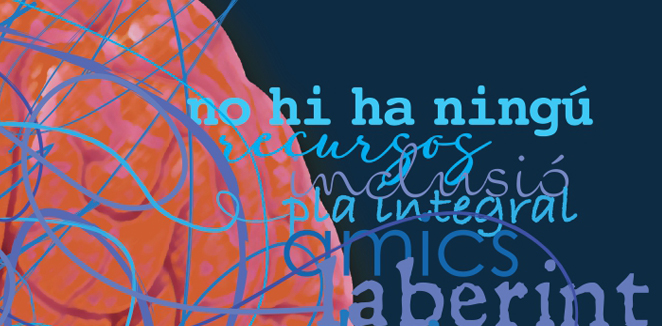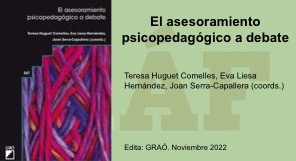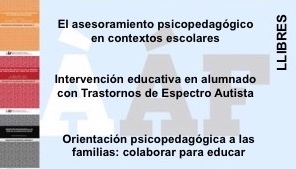El acompañamiento y la orientación en la parentalidad a familias en entornos de diversidad cultural: Ser madre en Pakistán, ser madre de Pakistán.
DOI:
https://doi.org/10.32093/ambits.vi55.5029Palabras clave:
Parentalidad, maternidad en Pakistan, migración, bienestar emocional, salud mental, desarrollo infantil, gestión de la diversidadResumen
Uno de los retos a abordar en la sociedad actual es la interculturalidad y la gestión de la diversidad en los diferentes espacios en los cuales convivimos y nos relacionamos las personas. Conocer al otro –a la otra parte de- es un primer paso para evitar el estigma y generar espacios inclusivos en los que ofrecer los apoyos necesarios y ajustados a la realidad de cada familia. El objetivo de este artículo, que surge de un proyecto de tesis doctoral en curso que pretende evaluar la relación entre las prácticas parentales y el desarrollo infantil en población de origen pakistaní, es contribuir al conocimiento de una de las comunidades migradas más numerosas de Cataluña. En este artículo, como paso previo al desarrollo de nuestra investigación, exploraremos algunas características propias de la estructura y el funcionamiento familiar de las familias pakistanís, en el país de origen y en contexto de migración, y reflexionaremos sobre aquellos factores relacionados con la cultura de origen y el proceso migratorio que pueden incidir en el ejercicio de la parentalidad, y en especial de la maternidad, e influir en el desarrollo de los hijos y las hijas en etapas tempranas.
Citas
Achotegui, J. (2009). Migración y salud mental. El síndrome del inmigrante con estrés crónico y múltiple (síndrome de Ulises). Revista de Servicios Sociales, 46, 163-171.
Aldgate, J. (2006). ‘Children, Development and Ecology’. In J. Aldgate, D. Jones, W. Rose & C. Jeffrey (eds.) The Developing World of the Child. Jessica Kingsley Pulishers.
Ali, M. (2008). Loss of Parenting Self-efficacy among Immigrant Parents. Contemporary Issues in Early Childhood, 9 (2),148-160.
Aruj, R. (2009). Causas, consecuencias, efectos e impacto de las migraciones en Latinoamérica. Papeles de Población, 14 (55), 95-116
Aubel J. (2012). The role and influence of grandmothers on child nutrition: culturally designated advisors and caregivers. Matern Child Nutr. Jan;8(1):19-35.
Ayala-Nunes L, Lemos I. y Nunes C. (2013). Predictores del estrés parental en madres de familias en riesgo psicosocial. Univ Psychol. Nov 11;13(2):529-39.
Berry, J. (2005). Acculturation: Living successfully in two cultures. International Journal of Intercultural Relations, 29(6), 697–712.
Bornstein, M. (2017). Parenting in acculturation: Two contemporary research designs and what they tell us. Current Opinion in Psychology, 15, 195-200.
Bornstein M. i Bohr Y. (2011). Immigration, acculturation and parenting. In Tremblay R. Boivin M., Peters R. (Eds.), Encyclopedia of early childhood development. Center of Excellence for Early Childhood Development.
Bronfenbrenner, U., & Morris, P. A. (1998). The ecology of developmental processes. In W. Damon & R. M. Lerner (Eds.), Handbook of child psychology, Vol. 1: Theoretical models of human development (5th ed., pp. 993 – 1023). New York:Wiley
Boyden J., Ling, B., i Myers, W. (1998). What works for working children. Stockhol:Save the Children. Sweden.
Burke J, Pardini D. i Loeber R. (2008). Reciprocal relationships between parenting behavior and disruptive psychopathology from childhood through adolescence. J.Abnorm Child Psychol. Jul;36(5):679-92.
Chung, E., Hagaman, A., LeMasters, K., Andrabi, N., Baranov, V., Bates, L., Gallis, J.A., O’Donnell, K., Rahman, A., Sikander, S., Turner, E.L., Maselko, J. (2019). Grandmother Involvement in Rural Pakistan: An Observational Study. Child Growth and Development.
Dabrowska A. i Pisula E. (2010). Parenting stress and coping styles in mothers and fathers of pre-school children with autism and Down syndrome. J Intellect Disabil Res. Mar;54(3):266-80.
de Haan, M. (2011). The reconstruction of parenting after migration: A perspective from cultural translation. Human Development, 54(6), 376–399.
Deater-Deckard, K. (2004). Parenting stress. Yale University Press.
Gallardo, A. (2019). Aculturación Parental: Una revisión de los desafíos y ajustes que implica el proceso de aculturación en las cogniciones parentales. Summa Psicológica UST 2019, Vol.16, Nº2: 121 – 129. ISSN: 0718-0446.
Giallo, R., Kienhuis, M., Treyvaud, K. i Matthews, J. (2008). A Psychometric Evaluation of the Parent Self-efficacy in Managing the Transition to School Scale. Australian Journal of Educational & Developmental Psychology, 8, 36- 48.
Kingston, D., Touh, S. i Whitfield, H.. (2012). Prenatal and postpartum maternal psychological distress and infant development: a systematic review. Child Psychiatry Hum Dev. Oct;43(5):683-714.
Lingam R., Gupta P. i Zafar S., (2014). Understanding care and feeding practices: building blocks for a sustainable intervention in India and Pakistan. Ann NY Acad Sci 1308:204–17.
Mäntymaa, M., Puura, K., Luoma, I., Latva, R., Salmelin, R. K., i Tamminen, T. (2012). Predicting internalizing and externalizing problems at five years by child and parental factors in infancy and toddlerhood. Child Psychiatry and Human Development, 43(2), 153–170.
Mumtaz Z. i Salway S. (2007). Gender, pregnancy and the uptake of antenatal care services in Pakistan. Sociology of Health & Illness 29, 1–26.
Østberg, S. (2003). Norwegian-Pakistani Adolescents: Negotiating Religion, Gender, Ethnicity and Social Boundaries. YOUNG, 11(2), 161–181.
Owusu-Bempah, K. i Howitt, D. (2000). Psychology beyond western perspectives. BPS Books.
Perreira, K., Chapman, M. i Stein, G. (2006). Becoming an American parent: Overcoming challenges and finding strengths in a new immigrant Latino community. Journal of Family Issues, 27, 1383-1414.
Rashid, S. (1996). Attachment through a cultural lens. In D.Howe (ed). Attachment and loss in child and family social work. Aldershot: Broomfield.
Roesr-Stier, D. (2001) Reducing risk for children in changing cultural contexts: Recommendations for the intervention and training. Child Abuse and Neglect, 25, 231-248.
Sameroff, A. (2009). The transactional model. In A. Sameroff (Ed.), The transactional model of development: How children and contexts shape each other (pp. 3-21). Washington, DC, US: American Psychological Association.
Selin, H. (2014). Parenting across cultures: Childrearing, motherhood and fatherhood in Non-Western Cultures. Springer Science Business.
Senturk, V., Abas, M., Berksun, O., i Stewart, R. (2011). Social support and antenatal depression in extended and nuclear family environments in Turkey: a cross-sectional survey. BMC Psychiatry, 11, 1-10.
Shafiq, S. (2021). Development of an individual in pakistani society. Reflections on historical, political, sociological, psychological and mental health aspects. Autoedición.
Sharma M, i Kanani S. (2006). Grandmothers' influence on child care. Indian J Pediatr 73:295–8.
Stein, A., Malmberg, L.-E., Sylva, K., Barnes, J. i Leach, P. (2008). The influence of maternal depression, caregiving, and socioeconomic status in the post-natal year on children’s language development. Child: Care, Health and Development, 34(5), 603–612.
Teti, D. i Gelfand, D. (1991). Behavioral competence among mothers of infants in the first year: The meditational role of maternal self-efficacy. Child development, 62 (5), 918-929.
Woodhead, M. (1990). Psychological and cultural contribution of children’s needs. In A. James and A. Prout (eds). Constructing and Reconstructing Childhood. Farmes Press.

Descargas
Publicado
Número
Sección
Licencia
Los autores/as conservan los derechos de autor y conceden a la revista el derecho de primera publicación de la obra, registrada bajo una licencia Creative Commons Reconeixement-NoComercial-Sense Obra Derivada. Esta licencia permite la descarga de las obras y que se puedan compartir con otros siempre que se reconozca la autoría, pero no permite que se modifiquen de ninguna forma ni ser utilizadas con finalidad comercial.














